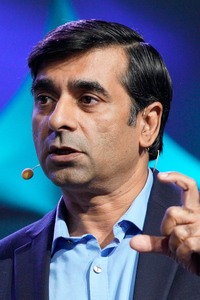[Click here for homepage in English]
スコープ
この国際会議は,ブロックチェーンとその応用に関して,フィンテック,暗号資産,ブロックチェーンに関連する分野で活躍する様々な科学技術コミュニティの研究者や実務家が一堂に会することを目的とします。ブロックチェーン全般に関する理論的および/または応用的な研究をご発表ください。
この国際会議のトピックは以下のとおりですが,これらに限定しません。
- 暗号資産,暗号通貨
- ブロックチェーン技術
- B2BおよびB2Cソリューション
- 制度や規制の問題
- 異常検知,サイバーセキュリティ
- デジタル資産市場,クレジットネットワーク,スマートコントラクト,送金,デジタルID
- エネルギー,環境問題への応用
- 金融包摂
- イノベーション政策
- ネットワーク科学
主催・共催
- 主催:Graduate School of Advanced Integrated Studies in Human Survivability, Kyoto University
- 共催:
- 理化学研究所 数理創造プログラム
- Ripple Labs Inc.
- SBI ホールディングス株式会社
- The B.E.S.T. Society (The Big data on Economy, Science, and Technology)
- 野村財団 (金融・証券のフロンティアを拓く研究助成)
開催日
- 2021年2月17日(水)から18日(木)
開催場所
- ハイブリッド会議です。ご希望の方は,下記の会場にお越しください。また,オンラインでの発表やディスカッションも歓迎します。
- 京都大学 百周年時計台記念館 国際交流ホール I
- 会場:https://www.kyoto-u.ac.jp/en/about/profile/facilities/staff/clocktower
- アクセス:https://www.kyoto-u.ac.jp/en/access/main-campus-map
基調講演・招待講演
- 基調講演
- David SCHWARTZ (CTO, Ripple, USA)
“Under the Hood: Introduction to the XRP Ledger”
- David SCHWARTZ (CTO, Ripple, USA)
- 招待講演者(日本語セッション)
- 吉川 絵美 (VP of Corporate Strategy & Operations, Ripple, USA)
“金融システムの脱炭素化に向けたサステナビリティ戦略” - 酒井 直樹 (株式会社電力シェアリング)
“ブロックチェーンを活用したエネルギーとSDGsの将来像” - 藤本 守 (SBIホールディング株式会社)
“地域および中小企業の活性化にブロックチェーン技術はどう役立つか?”
- 吉川 絵美 (VP of Corporate Strategy & Operations, Ripple, USA)
- 招待講演者(アルファベット順)
- Kensuke FUKUDA (National Institute of Informatics)
“Characterizing money laundering activities on Bitcoin ecosystem” - Taisei KAIZOJI (International Christian University (ICU))
“Market Efficiency and Information Transmission in Cryptocurrency Markets” - Anjum KHURSHID (Dell Medical School, University of Texas at Austin)
“Empowering patients in the U.S. healthcare system using blockchain applications” - Dániel Kondor (MIT, USA)
“The complex network structure of cryptocurrencies” - Raffaella MULAS (The Alan Turing Institute, London, and University of Southampton, UK)
“Hypergraph Spectral Theory and Applications” - Kenichi UEDA (University of Tokyo)
“Digital Currency and Banking”
- Kensuke FUKUDA (National Institute of Informatics)
参加登録
- こちらからお申込みください: Registration form.
重要な日程
- CLOSED | 一般講演者の講演概要受付締切:2021年1月31日
- 講演受理の通知:2021年2月10日
- 事前登録(講演概要提出なし)締切:2021年2月16日
ただし、当日の登録も受け付けます。その場合にはzoom URLを登録時にメールします。
注意:当日お昼(12時)までに登録してください。 - いずれの場合も参加登録料は不要です。
プログラム
- 池田 裕一(京都大学)
- 太田 一陽(京都大学 学術研究支援室)
- 青山 秀明(独立行政法人経済産業研究所,理化学研究所 数理創造プログラム)
- 初田 哲男((理化学研究所 数理創造プログラム)
- 藤原 義久(兵庫県立大学)
- 吉川 絵美(Ripple Labs Inc.)
基調講演・招待講演
- 基調講演
- David Schwartz (CTO, Ripple, USA)
Talk title: “Under the Hood: Introduction to the XRP Ledger”
Abstract: Developers building on blockchain today use XRP and its corresponding blockchain, the XRP Ledger, for its performance, low cost, reliability, scalability and inherently green attributes. Learn about the ins and outs of the XRP Ledger in this deep dive on the foundation, mechanics, and features of the blockchain with David Schwartz, Ripple CTO and co-creator of XRP Ledger—including new uses cases for CBDCs and stablecoins as the future of fiat.

- David Schwartz (CTO, Ripple, USA)
- 招待講演(日本語セッション)
-
- 吉川 絵美 (VP of Corporate Strategy & Operations, Ripple, USA)
Talk title: “金融システムの脱炭素化に向けたサステナビリティ戦略”
Abstract: 今日、世界の金融取引は様々なシステムを通して処理されていますが、法定通貨およびデジタル通貨を含む全ての金融取引が消費する二酸化酸素の量は驚くほど高く、温暖化、森林破壊、汚染など様々な問題を引き起こしています。このような環境破壊の脅威に対して、世界の様々な業界の指導者たちは2050年までに二酸化炭素のネット・ゼロ化すると宣言をしています。このセッションでは、既存の金融システムがどのような環境への負の影響を与えており、暗号資産やブロックチェーンが普及するにつれて、いかにフィンテック業界がネット・ゼロ化において大きな役割を担うかについて説明をします。一例として、パブリックブロックチェーンの中でも特に電力効率性が高いとされるXRP Ledgerの特長について、また、EW Zeroを通したブロックチェーンの脱炭素化の取り組みなどについて紹介します。

- 酒井 直樹 (株式会社電力シェアリング)
Talk title: “ブロックチェーンを活用したエネルギーとSDGsの将来像”
Abstract: 2050年カーボンニュートラルを目指す日本政府は日本発のSDGsモデルとして「地域循環共生圏」を打ち出している。世界潮流を見通すと、(1) グローバル資本主義の限界、(2) メガシティの脆弱性、(3) 希薄化する人間関係とコミュニティ(4) 限界費用ゼロ社会での新たな「搾取」などの相互に連関する課題が浮かび上がっている。SDGsの本質は、物的・金銭的価値の再定義、すなわち、「私・みんな・自然の豊かさ」への転換であり、それは(1) 「しじょう」から「いちば」への市場の変換、(2) 行き過ぎた過密都市からの分散化、(3) バーチャルとリアルを融合したコミュニティの復活、(4) 中抜きのないシェア経済によって実現されうる。ブロックチェーン技術は、(1) 「いちば」の形成、(2) ひと・もの・かねのマッチング、(3) P2Pの総体としてのコミュニティ形成、(4) 直接取引のもたらす新しい効用により、その実現に貢献しうる。特に、電力市場とブロックチェーン技術の親和性は以下の面で高い。それは、(1) 分散型再エネと分散型取引、(2) プロシューマ同士の余剰電力取引、(3) バーチャルマイクログリッド取引、(4) V2G、⑤仮想通貨等による低コスト・セキュア・即時約定・決済などにおいてである。しかし、その社会実装にあたっては、(1) プロダクトアウトではなくマーケットイン的思考でUXとUIを徹底的に考察すること、(2) 昨今の電力危機のように常に変化する電力業界を精緻にウオッチし続けること、(3) 電力のkWh取引のみならず、二酸化排出量削減価値取引や水素取引への拡張への市場ドメインの拡張を考慮すべきである。最適な技術と政策・規制、ビジネスモデルというインプットが融合し、アウトプットとしての社会実装、アウトカムとしてのソーシャルイノベーション、インパクトとしてのカーボンニュートラルとSDGsの達成を果たすことが可能となる。環境省委託事業における電力シェアリング社の農業と電力取引の融合したビジネスモデルの社会実装への取組みを、ケーススタディとしてご紹介する。

- 藤本 守 (SBIホールディング株式会社)
Talk title: “地域および中小企業の活性化にブロックチェーン技術はどう役立つか?”
Abstract: ここ1年でブロックチェーン技術の実用範囲が広がって来ています。金融分野を筆頭に、サプライチェーン、エネルギー、リサイクル等への適用が進んでいます。企業や公的機関等エンタープライズ領域においてブロックチェーン技術が注目される大きな理由は、低コストで複数の当事者が唯一正しい情報を参照・利用する事が出来るためです。このブロックチェーン技術の特徴をうまく活用することにより無駄な社会コストを削減することが可能になります。参考例として地域活性化をサポートし誰も取り残さないための仕組みとして検討中のレジリエントでサステイナブルなDXネットワークの構想をご紹介します。

- 吉川 絵美 (VP of Corporate Strategy & Operations, Ripple, USA)
-
- 招待講演(アルファベット順)
-
- Kensuke FUKUDA (National Institute of Informatics)
Talk title: “Characterizing money laundering activities on Bitcoin ecosystem”
Abstract: In this presentation, we talk about how to characterize potential laundering activities on Bitcoin transactions with a graph-theoretic approach.
We first create transaction graphs and analyze various graph features of laundering and legitimate transactions by extracting publicly-available Bitcoin transaction data over several years.
As the main contribution, we highlight the difference of graph structures (i.e., output values and neighbourhood) between laundering and legitimate transactions.
Next, we evaluate the performance of several machine learning-based classifiers with four types of features (immediate neighbours, curated features, deepwalk embeddings and node2vec embeddings) to classify laundering and legitimate activities.
We finally discuss the prediction ability of the classifiers with several techniques (i.e., ensemble and over-sampling) for detecting unknown laundering services.

- Taisei KAIZOJI (International Christian University (ICU))
Talk title: “Market Efficiency and Information Transmission in Cryptocurrency Markets”
Abstract: In this talk, comprehensive studies investigating the statistical properties of the Cryptocurrency exchange rate are presented. Firstly, we demonstrate that in the long term, the semi-strong market efficiency of cryptocurrencies holds by methodologies that compare FX spot exchange rates to cryptocurrency exchange rates (CER), which is given by CER=CRP_EUR/CRP_USD, where CRP_EUR and CRP_USD are the cryptocurrency prices in Euros and U.S. Dollars, respectively. Secondly, we investigate the mechanism of information transmission across cryptocurrency exchange markets and FX market by. In the short term, the causal order of information transmission, FX Spot rate to Bitcoin to Ethereum to Ripple at each time, was found by applying the SVAR-LiNGAM.

- Anjum KHURSHID (Dell Medical School, University of Texas at Austin)
Talk title: “Empowering patients in the U.S. healthcare system using blockchain applications”
Abstract: Interoperability and data harmonization are major problems in the health sector in most countries. These lead to fragmentation of life-saving information as well as challenges in linking of patient data across information systems. Distributed ledger technologies provide an architecture to address some of these problems by moving away from silos of centralized large databases to distributed, individual-controlled data sources. Blockchain technology provides consensus, auditability, immutability, and security as additional features to such a system, making it an attractive alternative.
The US healthcare system is the largest health system by expenditure in the world, yet faces such fragmentation of data even more acutely. Our research team in the University of Texas at Austin has developed a blockchain based patient identity and consent management system, MediLinker, that empowers patients with controlling their own data. We tested the application with simulated data to study the benefits and challenges of adoption of blockchain applications in healthcare. We will present the design, architecture, and key features of the MediLinker application and describe some of the challenges in adoption of such applications in the real world.

- Dániel Kondor (MIT, USA)
Talk title: “The complex network structure of cryptocurrencies”
Abstract: We analyze Bitcoin and Ethereum digital currency systems, where the complete list of transactions is publicly available. Using this dataset, we reconstruct the network of transactions and extract the time and amount of each payment. We analyze the structure of the transaction network by measuring network characteristics over time, such as the degree distribution, degree correlations, and clustering. We find that linear preferential attachment drives the growth of the network. We also study the dynamics taking place on the transaction network, i.e., the flow of money. We measure temporal patterns and wealth accumulation. Investigating the microscopic statistics of money movement, we find that sublinear preferential attachment governs the evolution of the wealth distribution. We report a scaling law between the degree and wealth associated with individual nodes.

- Raffaella MULAS (The Alan Turing Institute, London, and University of Southampton, UK)
Talk title: “Hypergraph Spectral Theory and Applications”
Abstract: We introduce graphs and hypergraphs as valid models for empirical networks. We introduce the normalized Laplace operator for both graphs and hypergraphs, and we discuss the properties of their spectra. Moreover, we discuss applications of this theory.

- Kenichi UEDA (University of Tokyo)
Talk title: “Digital Currency and Banking”
Abstract: I overview current discussions and present my views on digital currency and banking issues based on economic analysis, focusing on the following three questions. How should a central bank digital currency coexist with private-sector digital currencies such as crypto-currencies? How would digitalization of money and finance require changes in the economic theory on money and banking and related discussions on the banks’ roles and vulnerabilities? Based on such progress, how should the financial system and related regulations change?

- Kensuke FUKUDA (National Institute of Informatics)
-
[Click here for homepage in Japanese]
Scope
The International Conference on Blockchains and their Applications aims at bringing together researchers and practitioners from various communities of science and technology working on areas related to FinTech, Crypto-asset, and Blockchain.
Contributors are encouraged to submit theoretical and/or applied articles on their research related to Blockchains in general.
Topics of the conference include but are not limited to the followings:
- Crypto-asset, cryptocurrency
- Blockchain technologies
- B2B and B2C solutions
- Regulatory issues
- Anomaly detection, cybersecurity
- Digital assets market, credit network, smart contract, remittance, digital ID
- Application to energy and environmental issues
- Financial inclusion
- Innovation policy
- Network science
The document of Call For Paper can be downloaded here for the benefit of circulation.
Journal Special Issue
- We will publish peer-reviewed papers in the Physical Society of Japan’s JPS Conference Proceedings. Contributors can submit papers!
Organized by
- Graduate School of Advanced Integrated Studies in Human Survivability, Kyoto University
- Co-sponsors:
- RIKEN iTHEMS
- Ripple Labs Inc.
- SBI Holdings, Inc.
- The B.E.S.T. Society (The Big data on Economy, Science, and Technology)
- The Nomura Foundation (Grants for Social Science)
Date
- February 17 (Wed) and 18 (Thu) , 2021
Venue
- Hybrid conference. Those who wish to come to the conference are welcome to the following venue. On-line presentations and discussions are also welcome.
- International Conference Room I, Clock Tower Centennial Hall, Kyoto University
- Place: https://www.kyoto-u.ac.jp/en/about/profile/facilities/staff/clocktower
- Access: https://www.kyoto-u.ac.jp/en/access/main-campus-map
Keynote and Invited Speakers
- Keynote speaker
- David SCHWARTZ (CTO, Ripple, USA)
“Under the Hood: Introduction to the XRP Ledger”
- David SCHWARTZ (CTO, Ripple, USA)
- Invited speakers (Japanese session)
- Emi YOSHIKAWA (VP of Corporate Strategy & Operations, Ripple, USA)
“Sustainability Strategies for Decarbonizing the Financial System” - Naoki SAKAI (Denryoku Sharing Ltd.)
“The Future of Energy and the SDGs with Blockchain” - Mamoru FUJIMOTO (SBI Holdings)
“How can blockchain technology help revitalize communities and SMEs?”
- Emi YOSHIKAWA (VP of Corporate Strategy & Operations, Ripple, USA)
- Invited speakers (alphabetical order)
- Kensuke FUKUDA (National Institute of Informatics)
“Characterizing money laundering activities on Bitcoin ecosystem” - Taisei KAIZOJI (International Christian University (ICU))
“Market Efficiency and Information Transmission in Cryptocurrency Markets” - Anjum KHURSHID (Dell Medical School, University of Texas at Austin)
“Empowering patients in the U.S. healthcare system using blockchain applications” - Dániel Kondor (MIT, USA)
“The complex network structure of cryptocurrencies” - Raffaella MULAS (The Alan Turing Institute, London, and University of Southampton, UK)
“Hypergraph Spectral Theory and Applications” - Kenichi UEDA (University of Tokyo)
“Digital Currency and Banking”
- Kensuke FUKUDA (National Institute of Informatics)
Registration
- Click here for Registration form.
Important dates
- CLOSED | Deadline of abstract submission (with registration) for general speakers: January 31, 2021
(N.B. Those who wish to submit an abstract for presentation must register until the end of January.)
Thank you for all the submissions! - Notification of acceptance: February 10, 2021
- Registration (without abstract submission) deadline: February 16, 2021
Registration will be open on the days of conference. For them, we will send zoom URLs privately by email.
N.B. Registration must be done until noon (12am) on each day.
- No registration fee is required.
Program
- Yuichi Ikeda (Kyoto University), Chairman
- Kazuki Ota (Kyoto University Research Administration Office)
- Hideaki Aoyama (RIETI; RIKEN iTHEMS)
- Tetsuo Hatsuda (RIKEN iTHEMS)
- Yoshi Fujiwara (University of Hyogo)
- Emi Yoshikawa (Ripple Ltd.)
Keynote and Invited Talks
- Keynote speaker
- David Schwartz (CTO, Ripple, USA)
Talk title: “Under the Hood: Introduction to the XRP Ledger”
Abstract: Developers building on blockchain today use XRP and its corresponding blockchain, the XRP Ledger, for its performance, low cost, reliability, scalability and inherently green attributes. Learn about the ins and outs of the XRP Ledger in this deep dive on the foundation, mechanics, and features of the blockchain with David Schwartz, Ripple CTO and co-creator of XRP Ledger—including new uses cases for CBDCs and stablecoins as the future of fiat.

- David Schwartz (CTO, Ripple, USA)
- Invited speakers (Japanese session)
-
- Emi YOSHIKAWA (VP of Corporate Strategy & Operations, Ripple, USA)
Talk title: “Sustainability Strategies for Decarbonizing the Financial System”

- Naoki SAKAI (Denryoku Sharing Ltd.)
Talk title: “The Future of Energy and the SDGs with Blockchain”

- Mamoru FUJIMOTO (SBI Holdings)
Talk title: “How can blockchain technology help revitalize communities and SMEs?”

- Emi YOSHIKAWA (VP of Corporate Strategy & Operations, Ripple, USA)
-
- Invited speakers (alphabetical order)
- Kensuke FUKUDA (National Institute of Informatics)
Talk title: “Characterizing money laundering activities on Bitcoin ecosystem”
Abstract: In this presentation, we talk about how to characterize potential laundering activities on Bitcoin transactions with a graph-theoretic approach.
We first create transaction graphs and analyze various graph features of laundering and legitimate transactions by extracting publicly-available Bitcoin transaction data over several years.
As the main contribution, we highlight the difference of graph structures (i.e., output values and neighbourhood) between laundering and legitimate transactions.
Next, we evaluate the performance of several machine learning-based classifiers with four types of features (immediate neighbours, curated features, deepwalk embeddings and node2vec embeddings) to classify laundering and legitimate activities.
We finally discuss the prediction ability of the classifiers with several techniques (i.e., ensemble and over-sampling) for detecting unknown laundering services.

- Taisei KAIZOJI (International Christian University (ICU))
Talk title: “Market Efficiency and Information Transmission in Cryptocurrency Markets”
Abstract: In this talk, comprehensive studies investigating the statistical properties of the Cryptocurrency exchange rate are presented. Firstly, we demonstrate that in the long term, the semi-strong market efficiency of cryptocurrencies holds by methodologies that compare FX spot exchange rates to cryptocurrency exchange rates (CER), which is given by CER=CRP_EUR/CRP_USD, where CRP_EUR and CRP_USD are the cryptocurrency prices in Euros and U.S. Dollars, respectively. Secondly, we investigate the mechanism of information transmission across cryptocurrency exchange markets and FX market by. In the short term, the causal order of information transmission, FX Spot rate to Bitcoin to Ethereum to Ripple at each time, was found by applying the SVAR-LiNGAM.

- Anjum KHURSHID (Dell Medical School, University of Texas at Austin)
Talk title: “Empowering patients in the U.S. healthcare system using blockchain applications”
Abstract: Interoperability and data harmonization are major problems in the health sector in most countries. These lead to fragmentation of life-saving information as well as challenges in linking of patient data across information systems. Distributed ledger technologies provide an architecture to address some of these problems by moving away from silos of centralized large databases to distributed, individual-controlled data sources. Blockchain technology provides consensus, auditability, immutability, and security as additional features to such a system, making it an attractive alternative.
The US healthcare system is the largest health system by expenditure in the world, yet faces such fragmentation of data even more acutely. Our research team in the University of Texas at Austin has developed a blockchain based patient identity and consent management system, MediLinker, that empowers patients with controlling their own data. We tested the application with simulated data to study the benefits and challenges of adoption of blockchain applications in healthcare. We will present the design, architecture, and key features of the MediLinker application and describe some of the challenges in adoption of such applications in the real world.

- Dániel Kondor (MIT, USA)
Talk title: “The complex network structure of cryptocurrencies”
Abstract: We analyze Bitcoin and Ethereum digital currency systems, where the complete list of transactions is publicly available. Using this dataset, we reconstruct the network of transactions and extract the time and amount of each payment. We analyze the structure of the transaction network by measuring network characteristics over time, such as the degree distribution, degree correlations, and clustering. We find that linear preferential attachment drives the growth of the network. We also study the dynamics taking place on the transaction network, i.e., the flow of money. We measure temporal patterns and wealth accumulation. Investigating the microscopic statistics of money movement, we find that sublinear preferential attachment governs the evolution of the wealth distribution. We report a scaling law between the degree and wealth associated with individual nodes.

- Raffaella MULAS (The Alan Turing Institute, London, and University of Southampton, UK)
Talk title: “Hypergraph Spectral Theory and Applications”
Abstract: We introduce graphs and hypergraphs as valid models for empirical networks. We introduce the normalized Laplace operator for both graphs and hypergraphs, and we discuss the properties of their spectra. Moreover, we discuss applications of this theory.

- Kenichi UEDA (University of Tokyo)
Talk title: “Digital Currency and Banking”
Abstract: I overview current discussions and present my views on digital currency and banking issues based on economic analysis, focusing on the following three questions. How should a central bank digital currency coexist with private-sector digital currencies such as crypto-currencies? How would digitalization of money and finance require changes in the economic theory on money and banking and related discussions on the banks’ roles and vulnerabilities? Based on such progress, how should the financial system and related regulations change?

- Kensuke FUKUDA (National Institute of Informatics)
IMPORTANT NOTICE
The organizers decided to postpone the conference for months due to our concern about the coronavirus disease 2019 (COVID-19). [February 20, 14:30 JST, 2020]
Scope
The International Conference on Blockchains and their Applications aims at bringing together researchers and practioans from different scientific communities working on areas related to FinTech, Crypto-asset, and Blockchain.
Contributors are encouraged to submit both theoretical and applied papers on their research in Blockchains. Topics for the conference include, but are not limited to: crypto-asset, cryptocurrency, blockchain technologies, B2B and B2C solutions, regulation, anomaly detection, cyber security, digital assets market, credit network, smart contract, remittance, digital ID, energy application, financial inclusion, and innovation policy.
Organized by
- Graduate School of Advanced Integrated Studies in Human Survivability, Kyoto University
- School of Government, Kyoto University
See below for the list of co-sponsors
Keynote and Invited Speakers
- Keynote speaker
- Sagar Sarbai (Ripple; Head of Regulatory Relations, APAC)
“Enabling an Internet of Value through Digital Assets”
- Sagar Sarbai (Ripple; Head of Regulatory Relations, APAC)
- Invited speakers (alphabetical order)
- Yoshiharu Akahane (NTT DATA Corporation, Business Strategy Department, Financial Segment, Digital Strategy Section, Blockchain Team; Senior Manager)
“Application of Blockchain Technology in Trade Industry” - Yuzo Kano (bitFlyer, Inc., co-founder; bitFlyer Blockchain, Inc. CEO; representative director of the Japan Blockchain Association)
“How the Blockchain Revolution Will Lead Social Changes: bitFlyer Blockchain’s Initiatives” - Shuji Kobayakawa (Meiji University, School of Political Science and Economics; Professor)
“Role of Central Banks in the Blockchain Economy” - Motonobu Matsuo (Financial Services Agency, Strategy Development and Management Bureau; Deputy Director-General)
“Crypto assets, blockchain and financial regulation: Overview of New Legislation of Crypto Assets and Governance of Blockchain” - Kazumasa Miyazawa (Soramitsu, Co., Ltd.; President and Representative Director,Sora Director, and also Tokyo Institute of Technology, Management Systems; Appointed Professor)
“World’s First Blockchain Central Bank Digital Currency in Cambodia” - Chinedum K. Umachi (Pacific Gas and Electric Company; Expert Product Manager for Blockchain)
“Insights into Exploring Blockchain within a Utility”
- Yoshiharu Akahane (NTT DATA Corporation, Business Strategy Department, Financial Segment, Digital Strategy Section, Blockchain Team; Senior Manager)
Special Session
- Session Title: “Women in Blockchain: Driving Diversity and Inclusion to Build a Thriving Industry Ecosystem”
- Chair: Emi Yoshikawa (Ripple)
- Yokiko Nishimura (Japan Cryptocurrency Business Association)
- Nat Sakimura (OpenID Foundation)
- Kristina Yasuda (InternetBar.org)
- Sachiko Yoshihama (IBM Japan)
- Emi Yoshikawa (Ripple)
Date
February 27 (Thu) and 28 (Fri) , 2020
The organizers decided to postpone the conference for months due to the concern about coronavirus disease 2019 (COVID-19). [February 20, 14:30 JST, 2020]
Venue
International Science Innovation Building, Kyoto University, Kyoto, Japan
- Place: https://www.saci.kyoto-u.ac.jp/en/innovation/
- Access: https://www.saci.kyoto-u.ac.jp/en/access/
Important dates
- CLOSED | Deadline of abstract submission (with registration) for general speakers: December 31, 2019
(N.B. Those who wish to submit an abstract for presentation must register until the end of December.) - CLOSED | Notification of acceptance: January 7, 2020
- CLOSED | Registration (without abstract submission); No registration fee is required.
Thank you for a lot of interest! Full of capacity now!
Program
The program can be downloaded from here (as of Feb 17; pre-final version)
Banquet
CANCELLED
(in alphabetical order)
- The Bank of Kyoto ,Ltd
- Fujitsu Laboratories,Ltd
- Hitachi, Ltd.
- IBM
- Information Processing Society of Japan
- The Institute of Electonics, Information and Communication Engineers (IEICE)
- LINE Corporation
- NIPPON TELEGRAPH AND TELEPHONE CORPORATION
- NTT DATA Corporation
- Ripple
Committee Members
- Yuichi Ikeda (Kyoto University), Chairman
- Naoyuki Iwashita (Kyoto University)
- Hideaki Aoyama (Kyoto University)
- Yoshi Fujiwara (University of Hyogo)
Keynote and Invited Talks
- Keynote speaker
- Sagar Sarbai (Ripple; Head of Regulatory Relations, APAC)
Talk title: “Enabling an Internet of Value through Digital Assets”
Abstract: The world is paying close attention to blockchain, and governments are moving quickly to understand this technology and its use cases. Ripple’s Sagar Sarbhai will discuss how digital assets can help usher in an Internet of Value – where value moves as easily as goods and information. He’ll detail where the industry stands today and what we can expect in the future in regards to real use cases and regulatory regimes in Asia.

- Sagar Sarbai (Ripple; Head of Regulatory Relations, APAC)
- Invited speakers (alphabetical order)
- Yoshiharu Akahane (NTT DATA Corporation, Business Strategy Department, Financial Segment, Digital Strategy Section, Blockchain Team; Senior Manager)
Talk title: “Application of Blockchain Technology in Trade Industry”
Abstract: Can Japan take the initiative in digitizing trade information, or will it become the future “Galapagos” in digital revolution? The world is moving fast toward trade digitalization, where blockchain technology has the greatest potential for application. The platform businesses have surged worldwide, and competition is intensifying among global players in recent years. In this session, we will outline the background of introducing blockchain technology in trade industry, and discuss the challenges and possibilities of distributed ledger technology.

- Yuzo Kano (bitFlyer, Inc., co-founder; bitFlyer Blockchain, Inc. CEO; representative director of the Japan Blockchain Association)
Talk title: “How the Blockchain Revolution Will Lead Social Changes: bitFlyer Blockchain’s Initiatives”
Abstract: Yuzo Kano, who says that the blockchain revolution is the next step in the Internet revolution, will hold a session. He will discuss how the upcoming blockchain revolution will change society and practical examples of how bitFlyer, Inc.’s independently-developed enterprise blockchain, miyabi, has been implemented. He will introduce examples of practical uses for miyabi including a real estate leasing program, translation platform for decentralized media, and a decentralized common ID concept called “bPassport”. Also, he will introduce our initiative to implement the travel rule to promote AML/CFT(Anti-Money Laundering/Countering the Financing of Terrorism) globally from our domestic virtual currency exchange.

- Shuji Kobayakawa (Meiji University, School of Political Science and Economics; Professor)
Talk title: “Role of Central Banks in the Blockchain Economy”
Abstract: A number of central banks around the world have been engaged with the blockchain technology for several years. For some, the technology will pave the way for introducing central bank digital currencies (CBDCs); for others, it could be a means to build innovative financial market infrastructures (FMIs) in the future. With the arrival of stablecoins and other cryptoassets, the case for central banks to issue CBDCs appears to be more imminent than ever. Accommodating the technology, either through its adoption for their own FMIs or setting the gateway, will come into sight to drive the blockchain ecosystem. Against such a background, the presentation will first sketch out different roles central banks have traditionally played in the financial system — an operator of core FMIs, an overseer of the financial system, and a catalyst of innovation. With reference to several blockchain-related FMI projects led by central banks, the presentation will then highlight a pivot those central banks are likely to play from the perspectives of underpinning trust, generating value-added in core FMIs, and fostering innovation in the blockchain economy.

- Motonobu Matsuo (Financial Services Agency, Strategy Development and Management Bureau; Deputy Director-General)
Talk title: “Crypto assets, blockchain and financial regulation: Overview of New Legislation of Crypto Assets and Governance of Blockchain”
Abstract: With regard to crypto assets, new legislation was established last year as a systematic response to the occurrence of external leakage of new customer crypto assets and the financing of crypto assets (ICO), and preparations for enforcement proceeded. The main contents of this legislation are: (1) Considering international trends, name change from “cryptocurrency” to “crypto asset”; (2) Respond to operations related to the exchange and management of crypto assets; (3) Dealing with new transactions and unfair practices using crypto assets such as ICO. After reviewing the status of crypto asset transactions and confirming the background of the above-mentioned new legislation, I will explain the contents of the legal development as clearly as possible. In addition, blockchain, which is the basic technology of crypto assets, has features such as globality and anonymity due to the Person-to-Person network, which poses new challenges for financial regulators in each country. I also want to try to explain as easily as possible.

- Kazumasa Miyazawa (Soramitsu, Co., Ltd.; President and Representative Director, and also Tokyo Institute of Technology, Management Systems; Appointed Professor)
Talk title: “World’s First Blockchain Central Bank Digital Currency in Cambodia”
Abstract: Solamits Co., Ltd. (Headquarters: Shibuya-ku, Tokyo) and the National Bank of Cambodia jointly developed token-type central bank digital currency “Bakong” and started test operation on July 18, 2019 aiming official launch in 2020 to realize safe, easy, quick and free payment and remittance using the blockchain “Hyperledger Iroha” to promote financial inclusion in Cambodia. With “Bakong”, the processing from small-amount retail payment to large-scale inter-bank settlement is consistently handled by the blockchain, and the nationwide settlement architecture has been greatly simplified and reduced in cost. Digital currency is different from crypto-asset(virtual currency) such as Bitcoin and Ethereum, and has a stable value linked to legal currency, high settlement speed, high processing power and transaction finality. As a result, it is expected to spread as a highly convenient digital payment method, and is expected to have a significant impact on the real economy. Currently, the development of the Digital Yuan (DC/EP) in China and Libra on Facebook are underway. It has also been reported that the European Union (EU) has recommended the European Central Bank (ECB) to consider issuing digital currency. According to a report from the World Economic Forum, central banks in more than 40 countries around the world are considering payment systems using blockchain, but the blockchain systems being developed by these central banks are currently in the stage of PoC. Under such circumstances, digital currency “Bakong ” started test operation on July 18, 2019, and has already been working with 10 banks and settlement companies including Acreda, the largest commercial bank in Cambodia, thousands of active users transfer money and pay at the store daily using “Bakong” as real money. It can be said that Cambodia realized the world’s first practical application of central bank digital currency using a blockchain, and it has been a great honor for Japanese company Soramitsu to contribute to this historic achievement. Mr. Miyazawa will explain the development process and design philosophy of “Bakong” and why it was realized by blockchain.

- Chinedum K. Umachi (Pacific Gas and Electric Company; Expert Product Manager for Blockchain)
Talk title: “Insights into Exploring Blockchain within a Utility”
Abstract: Since 2018, CK Umachi has been co-leading blockchain exploration at Pacific Gas and Electric, one of the largest utilities in the United States. In this talk, he will speak about his time exploring blockchain within the highly regulated environment of a California based utility company. This talk will highlight the challenges of exploring and testing the technology in this environment, both through CK’s experience and the experiences of his counterparts at other utilities and companies that have supported utilities exploring blockchain. These challenges include but are not limited to: the nascent state of the technology, education of key stakeholders, conflicting priorities, use case selection, funding of pilots, and regulatory uncertainty.

- Yoshiharu Akahane (NTT DATA Corporation, Business Strategy Department, Financial Segment, Digital Strategy Section, Blockchain Team; Senior Manager)
Special Session
- Session Title: “Women in Blockchain: Driving Diversity and Inclusion to Build a Thriving Industry Ecosystem”
Abstract: It is undeniable that the blockchain industry lacks gender diversity. Why are women underrepresented in the industry? Why does that matter? What can we do to correct the course? The panel of diverse professionals in the blockchain industry will discuss how we can build a thriving industry ecosystem by driving gender diversity and inclusion.- Chair: Emi Yoshikawa (Ripple)

- Yokiko Nishimura (Japan Cryptocurrency Business Association)

- Nat Sakimura (OpenID Foundation)

- Kristina Yasuda (InternetBar.org)

- Sachiko Yoshihama (IBM Japan)

- Chair: Emi Yoshikawa (Ripple)




